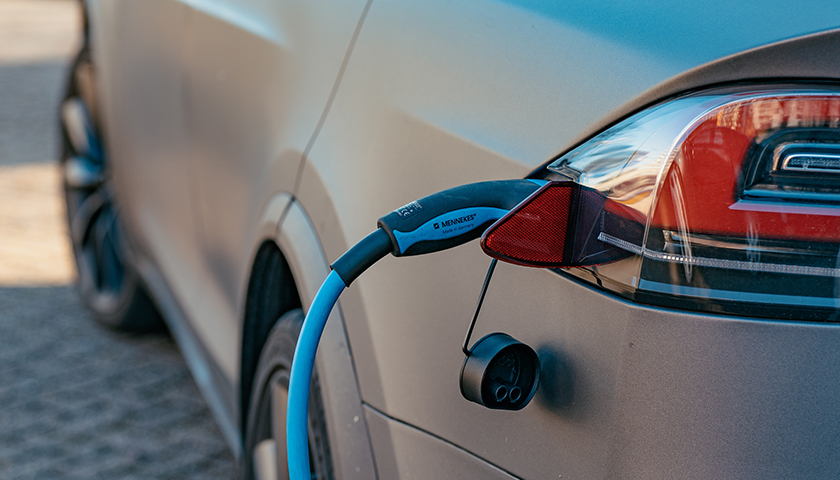by Scott McClallen
Michigan is trailing Illinois and Minnesota in the Midwest race to register the most electric vehicles.
Illinois leads with nearly 80,000 EVs, while Minnesota has 41,417 and Michigan has 34,380.
Michigan targets 2 million EVs by 2030, while Minnesota and Illinois each target 1 million by the same year.
Baruch Feigenbaum, senior managing director of transportation policy at the Reason Foundation, says the goals are likely aspirational.
“I don’t think there’s any mathematical way that they can reach those goals, just because it would take the price of electric vehicles and the availability of models dropping exponentially, which just isn’t going to happen with the challenges of getting lithium and the other materials,” Feigenbaum said in a phone interview.
Minnesota’s climate plan targets reaching 20 percent of EVs on the roads by 2030. With more than 5 million vehicles statewide, that number would be more than 1 million.
To reach that goal, Minnesota must register 136,940 vehicles each year until 2030, or 11,411 vehicles every month for the next seven years.
For Michigan to reach it’s EV goal, it must register 280,803 EVs each year until mid-2030, which would require registering 23,400 EVs every month for seven years.
For Illinois to reach its EV goal, it would need to add more than 131,400 EVs in each of the seven years, which would require registering 10,950 EVs for every month until 2030.
Feigenbaum said even if the states miss the target by 500,000, they might still consider the program as a win.
“It’s really aspirational,” Feigenbaum said. “It might be something you can raise money off of. It’s certainly not something that I think most of them believe are realistic.”
Feigenbaum said North Carolina Gov. Roy Cooper set an EV target goal of 1.25 million zero-emission vehicles by 2030. However, the state’s transportation department survey found many residents were hesitant to switch. About 53 percent of respondents who said they planned to buy or lease a new car in the next year said they would be “very” likely to consider getting an EV.
About 74 respondents, or 67 percent, expressed interest in buying or leasing an electric vehicle if the initial purchase price was about the same as a gas- or diesel-powered vehicle.
Some respondents didn’t like EVs price, range or limited charging stations.
Kelley Blue Book says the average price of an EV in September 2022 was $65,291. Meanwhile, the average price for a gas-powered vehicle was $48,100, and many used gas-powered cars cost between $5,000 and $15,000.
– – –
Scott McClallen is a staff reporter at The Center Square.





